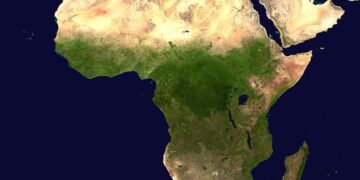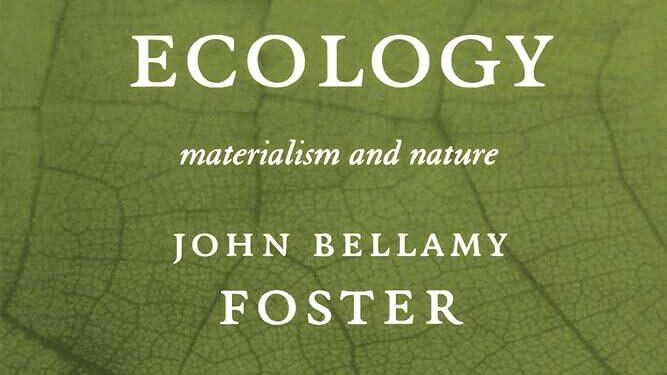In recent years, China has emerged as a pivotal arena for the development and application of Marxist ecological thought, bridging foundational ideas from Karl Marx with contemporary policy initiatives aimed at sustainable development. The article “Marxist Ecology in China: From Marx’s Ecology to Socialist Eco-Civilization Theory,” featured in Monthly Review, delves into how China is reinterpreting Marx’s ecological critiques to confront today’s environmental challenges. This exploration highlights the nation’s unique approach to integrating socialist principles with ecological imperatives, advancing what Beijing terms a “Socialist Eco-Civilization.” As global environmental concerns intensify, China’s evolving Marxist ecology offers critical insights into alternative pathways for harmonizing economic growth and environmental stewardship.
Marxist Ecology in China Explores Historical Roots and Contemporary Relevance
China’s engagement with Marxist ecology traces a profound intellectual journey, linking Marx’s critique of capitalism with contemporary environmental challenges. The foundational analysis of nature-society relations, as outlined by Marx, offers a critical lens through which China interprets the ecological crisis beyond mere resource depletion. It emphasizes the inherent contradictions of capitalist production that degrade the environment and alienate human beings from natural processes. This historical perspective has empowered Chinese scholars and policymakers to formulate an environmental philosophy rooted in class struggle, social equity, and the symbiotic relationship between humans and nature.
In the modern era, this theoretical groundwork converges with the government’s ambitious vision of the Socialist Eco-Civilization, a guiding framework for sustainable development and ecological governance. Key components of this framework include:
- Integration of environmental protection with economic planning
- Promotion of green technologies and renewable energy
- Strengthened legal frameworks for ecological conservation
- Community participation in environmental decision-making
| Concept | Marxist Ecology | Eco-Civilization Theory |
|---|---|---|
| Focus | Capitalism’s ecological contradictions | Harmonizing nature and society under socialism |
| Approach | Dialectical materialism and critique | Policy-driven ecological modernization |
| Goals | Address systemic causes of environmental harm | Realize sustainable development and green growth |
Integrating Marxist Principles with Socialist Eco-Civilization Theory for Sustainable Development
China’s approach to sustainable development increasingly hinges on the fusion of Marxist ecological thought with the uniquely tailored Socialist Eco-Civilization Theory. Rooted in Karl Marx’s critique of capitalism’s unsustainable exploitation of nature, this integrated framework emphasizes the dialectical relationship between human society and the environment. It reframes nature not as a mere resource to be exploited, but as an intrinsic part of societal progress and well-being. By aligning Marx’s principles with contemporary socialist governance, China aims to redefine growth through a lens of ecological harmony, prioritizing renewable resources, reducing carbon emissions, and fostering community-centered environmental stewardship.
Practical applications of this hybrid theory manifest across sectors, supported by government policies that encourage green innovation and social equity. The strategy reflects several core pillars:
- Collective ownership and management of natural resources.
- Integration of economic development with environmental protection.
- Advancement of clean energy technologies and infrastructure.
- Promotion of environmental education to enhance public ecological awareness.
- Enforcement of strict ecological regulations to correct market failures.
| Key Element | Focus Area | Outcome Goal |
|---|---|---|
| Social Ownership | Natural resource governance | Equitable resource distribution |
| Renewable Energy | Technology & innovation | Carbon neutrality by 2060 |
| Environmental Laws | Regulation enforcement | Reduced pollution levels |
Policy Recommendations Emphasize Collective Action and Environmental Justice in China’s Green Transition
Central to the envisioned green transition in China is a call for collective responsibility that transcends individual and market-driven approaches. Policy frameworks increasingly advocate for community-led stewardship of natural resources, emphasizing the integration of grassroots movements with state-led initiatives. This collaborative spirit is rooted in a Marxist ecological perspective, highlighting the necessity to challenge exploitative capitalist production modes that have historically marginalised both ecosystems and vulnerable populations. Key strategies include the establishment of local environmental governance councils and the promotion of cooperative resource management, ensuring that ecological protection aligns with social equity.
Moreover, environmental justice has emerged as a cornerstone in policy discourse, addressing uneven burdens borne by impoverished and rural communities amid rapid urbanization and industrialization. Policymakers are emphasizing measures that protect the rights of those disproportionately affected by pollution and land degradation, mandating transparent impact assessments and fair compensation mechanisms. The following table illustrates a snapshot of targeted policy actions designed to embed justice within China’s green agenda:
| Policy Focus | Primary Goal | Community Impact |
|---|---|---|
| Eco-village Development | Integrate sustainable agriculture and renewable energy | Enhance rural livelihoods, reduce migration |
| Pollution Redress Funds | Compensate affected residents | Restore health equity and trust in governance |
| Public Participation Platforms | Increase community input in environmental policy | Empower marginalized voices in decision-making |
To Conclude
In tracing the arc from Marx’s foundational ecological insights to the contemporary articulation of Socialist Eco-Civilization Theory, China’s evolving approach highlights a significant shift in integrating environmental concerns within its socio-political framework. As the nation grapples with the challenges of rapid industrialization and ecological degradation, Marxist ecology offers both a critical lens and a practical foundation for sustainable development policies. This synthesis underscores China’s unique pathway in addressing global environmental crises, suggesting that the dialogue between Marxist thought and ecological imperatives remains a dynamic and influential force shaping the country’s future.































